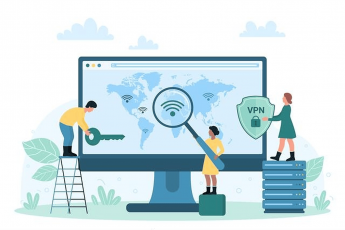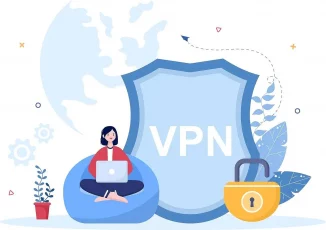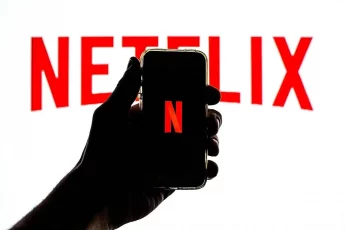A VPN is becoming an essential security tool, but how much does it cost? This will depend on the provider and the length of the subscription package. Almost all premium services offer multiple plans with long-term packages having massive discounts.
Moreover, they come with some form of a free trial or money-back guarantee that allows you to test the service risk-free before subscribing. But keep in mind that high cost doesn’t always equate to better quality.
Other factors that can affect the price of a VPN include:
- Number of servers available
- Ability to unblock Netflix and other streaming services
- Torrenting capability
- Data usage limits
- Number of simultaneous connections
Price comparison of the top 25 VPNs
Looking at the lowest prices of our top 25 VPNs, the average monthly cost is $4.09. However, the average price increases to $8.88 when we consider the monthly plans.
The table below shows the prices of the top 25 VPNs we have tested.
| VPN service | Cheapest monthly cost | Duration of the plan | Upfront payment |
|---|---|---|---|
| ExpressVPN | $6.67 | 12 months | $80.04 |
| NordVPN | $3.99 | 2 years | $95.76 |
| Private Internet Access (PIA) | $2.19 | 2 years | $52.56 |
| SurfShark | $2.49 | 2 years | $59.76 |
| AtlasVPN | $1.99 | 3 years | $71.64 |
| IPVanish | $3.99 | 12 months | $47.88 |
| PrivateVPN | $2 | 3 years | $72 |
| CyberGhost | $2.29 | 3 years | $82.44 |
| Windscribe | $4.08 | 12 months | $48.96 |
| ProtonVPN | €4.99 ($5.35) | 2 years | €119.76 (128.38) |
| VPNArea | $3.21 | 1 year | $77.04 |
| Astrill | $12.50 | 1 year | $150 |
| FastestVPN | $1.11 | 3 year | $39.96 |
| PureVPN | $1.99 | 2 years | $47.76 |
| Hide.me | $3.84 | 2 years | $92.16 |
| VPN.ac | $3.75 | 2 years | $90 |
| Mozilla VPN | $4.99 | 1 year | $59.88 |
| Hotspot Shield | $7.99 | 1 year | $95.88 |
| Strong VPN | $3.66 | 1 year | $43.92 |
| Mullvad | €5 ($5.36) | 1 year | €60 $(64.32) |
| HMA VPN | $2.99 | 3 years | $107.64 |
| Tunnelbear | $3.33 | 3 years | $119.88 |
| Ivacy | $1.19 | 5 years | $71.4 |
| VyprVPN | $8.33 | 1 year | $99.96 |
| VPN secure | $2.99 | 3 years | $107.64 |
As you can see from the table above, VPN services are priced differently. Also, the list doesn’t include free VPNs because they aren’t reliable. So, you will have to pay a fee to get the best protection for your security, privacy, and freedom online.
As mentioned earlier, the long-term plans have the best deals, although you will have to pay upfront. Since there are many VPN providers on the market, do your research to get the best service for your needs. Start by checking our unbiased reviews for the top VPNs in the market. Also, you can look at the best cheap VPNs that offer an outstanding balance between price and quality.
Comparison of the cheapest monthly plans
Most VPNs offer a monthly plan if you don’t want to commit to a long-term subscription. The table below compares the cheapest month-to-month packages.
| VPN service | Monthly price | Money-back guarantee |
|---|---|---|
| ProtonVPN | $7.49 | 30 days |
| Cactus VPN | $6.99 | 30 days |
| Mullvad | €5 ($5.36) | 30 days |
| IVPN | $6 | 30 days |
| AzireVPN | $3.24 | 7 days |
| PrivadoVPN | $7.99 | 30 days |
| PrivateVPN | $9.99 | 30 days |
| Hide.me | $9.95 | 30 days |
| VPNArea | $9.90 | 14 days |
| Windscribe | $9.00 | 3 days |
| AirVPN | $8.33 | 30 days |
| VPN.ac | $9 | 7 days |
| TorGuard | $9.99 | 7 days |
| Hide.me | $9.95 | 30 days |
| VPN Unlimited | $9.99 | 7 days |
| ZoogVPN | $9.99 | 7 days |
Factors affecting VPN cost
Below are some of the factors that influence VPN pricing.
The number of simultaneous connections
Most VPNs allow you to connect several devices, no matter the subscription package you’ve chosen. However, some services like the TorGuard base their prices on the number of devices you want to use. Below are its plans:
- Anonymous VPN: 8 devices
- Anonymous VPN Pro: 12 devices
- Anonymous VPN premium: 30 devices
Length of the subscription plan
This is another major factor that affects the price of a VPN. Usually, extended plans are cheaper than the month-to-month packages. For instance, here is the ExpressVPN pricing scheme.
- 1-month plan: $12.95 per month
- 6-month plan: $ 9.99 per month
- 1-year plan: $6.67 per month
With most VPNs we’ve reviewed, the monthly plans cost between $3.00 and $9.99, while the average pay is $8.88.
On the other hand, the monthly price of the long-term plans ranges from $2 to $12. The average annual/multi-year VPN price is around $4.09.
Unblocking capability
Most VPNs offer streaming support on all plans, but others don’t. Instead, they require you to pay more if you want to unblock streaming services. Typical examples include ProtonVPN, Mullvad, and TorGuard VPN.
Server network
Many VPNs allow you to access the entire server network regardless of your plan. However, others charge their plans on the number of servers you can access. For instance, with ProtonVPN, access to 400 servers costs €4/month (about $4.29), and 1,778 servers are €8/month (about $8.58).
Moreover, some expensive VPN plans come with faster servers (10Gbps or more) and a double VPN (multi-hop) feature.
Additional features
Some VPNs offer additional features like residential and dedicated IP addresses at an extra cost on the subscription fee. A good example is CyberGhost. Also, IVPN offers multi-hop servers and port forwarding on the Pro package and not on the standard plan.
Is a free VPN a viable option?
There are many VPNs that offer completely free services. However, you should avoid them because of the following reasons.
Poor security
As mentioned earlier, a VPN is a great security tool that will protect your data and traffic when using the internet. Unfortunately, many free VPNs employ weak encryption or none at all. As a result, your connections will be exposed to all and sundry, which is risky.
Lack of privacy
Another major issue with free VPNs is mediocre logging practices. Most of them have been caught collecting and selling users’ data to third parties. This is in complete contrast with many premium VPNs that adhere to strict zero-logs policies.
Few servers
Due to a lack of adequate resources, most free VPNs have a small network comprising a handful of servers. However, the servers are mostly congested because of the high number of users, leading to sluggish speeds.
Cannot bypass geo-restrictions
One of the primary uses of a VPN is to bypass the geographic restrictions of popular legal streaming services like Netflix. However, many free VPNs have weak unblocking capabilities and will not help you evade geo-blocks.
Free trials and money-back guarantee
A free trial allows you to test the VPN for a specific amount (typically 5-7 days) of time without paying anything. Some VPNs like CyberGhost won’t even require you to provide your payment details, which means you won’t have financial risk.
However, other providers ask for payment first and charge you if you don’t cancel the free trial in time. For example, Surfshark offers a 7-day free trial but asks you to submit your payment information.
On the other hand, you have to pay upfront with a money-back guarantee. Fortunately, many premium VPNs have no-questions-asked refund policies. CyberGhost has the best money-back guarantee of up to 45 days.
Is the VPN cost justified?
Some VPNs charge exorbitant prices, yet they offer poor services. However, high-quality VPNs offer great features without breaking your bank. Paying a few dollars a month will allow you to:
- Change your IP address
- Encrypt your internet connections
- Unblock popular streaming services
- Mask your internet activities from third parties
- Conceal your torrenting activities
Features to consider when choosing a VPN service
Now that we have looked at the different VPN prices let’s delve into the features you should look out for.
Security and privacy
The main reason for using a VPN is to make you more secure and private online. So, consider the following features when choosing a VPN:
- Encryption algorithm – Opt for a VPN that uses AES 256-bit encryption, the current industry standard.
- Leak protection – A good VPN should offer leak protection against DNS requests, IP addresses, and webRTC.
- Privacy policy – If you want to remain completely anonymous online, choose a VPN that has a strict no-logs policy. This means that the provider doesn’t collect any identifiable information.
- Jurisdiction – Finally, ensure the VPN you select is based in a privacy-friendly country that is not a member of the 5/9/14 Eye alliance. These are countries that spy on their citizens and share intelligence data.
Servers
Obviously, you will want a VPN that will enable you to change your IP address in as many locations as possible. Also, an extensive server network will enable you to get a nearby server for faster speed.
Device compatibility
Of course, you should choose a VPN that supports the major operating systems like Windows, macOS, iOS, Android, and Linux. Some services are even compatible with routers to enable you to connect devices that don’t work with VPNs. The number of allowable simultaneous connections is also important to consider.
Speed
Remember that the VPN’s encryption process and routing your traffic through intermediary servers will reduce your speed. So, choose a VPN with high-quality servers that produce blazing speed to minimize speed loss. Incredible speeds will enable you to stream online content smoothly, download torrents unrestricted and play games without interference.
Unblocking capability
Besides protecting your connections, a good VPN should also enable you to bypass geo-blocks of streaming sites like Netflix or Hulu. This will keep you entertained with your favorite movies and TV shows.
Conclusion
Most people believe that VPNs are costly. However, there are several affordable options that offer all the features you may need in a VPN. Thankfully, they offer multiple plans with massive discounts on long-term packages. This article highlights VPNs for every budget, so pricing shouldn’t prevent you from protecting yourself online.






